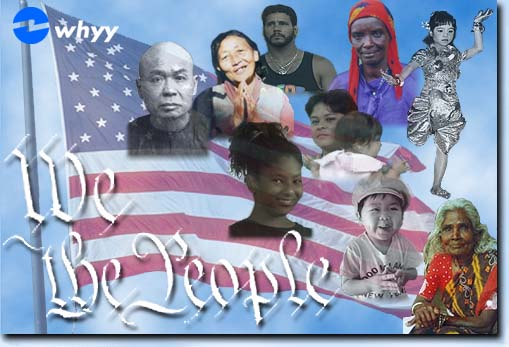|
|
LITR 5731 Seminar in Multicultural Literature: American Immigrant: model assignments 2010
|
|
Samuel Mathis
7 July 2010
Deporting the Dirty Aliens Who Cut in Line:
An Examination of the Language Surrounding Illegal Immigration
I began my second research post with the intention of searching immigration and its effects on the family left back home. Unfortunately, not much research has been published on the spouse and children left in the “old country.” However, I found various articles dealing with the subject of deportation and the language used to describe Mexican immigrants. I began searching a little deeper and I found that the language used to describe individuals who come to the United States is very important in understanding whether they are considered immigrants or aliens by the dominant culture. Over the years, those who immigrate north into the United States have been described as dirty, lazy, and a threat to the dominant culture’s way of life. These labels have become integrated into the common stereotype of illegal aliens. Through language and word choices used by public officials, judges, and the media, Mexican immigrants have been portrayed to the American population as undesirable immigrants.
One of the most basic examples of the power in words is seen in the difference between “deportation” and “exile.” In her essay, “Deportable Subjects: U.S. Immigration Laws and the Criminalizing of Communism,” Carol Boyce Davies shows the change in meaning of Claudia Jones’s removal from the United States. Davies sets up her contrast first by explaining Jones’s Communist leanings and her subsequent arrest, trial, and sentence to be deported back to her home country in the Caribbean islands (951). Jones had been living in the U.S. for more than twenty years, and could not believe that she was being forced to leave her “home” to return to where she was born (956). Instead of leaving, Jones requested the ability to take a “voluntary departure” from the US, and when granted, she moved to England (951). Jones’s leaving was seen as going into exile, and Davies explains that “exile is linked to being forced to leave one’s home. Thus the concept allowed Jones to step out of the dominant U.S. discourse surrounding her and into her own. It also technically allowed her to claim her African American identity” instead of the Caribbean immigrant identity being placed on her by the court (952). By voluntarily leaving the U.S., Jones’s was able to retain her American identity and refused to be associated with the labels of an illegal immigrant.
Interestingly enough, the court documents in Jones’s case referred to her as an “illegal immigrant” and not an “alien” in describing her immigration status in the U.S. I began to wonder when the term “alien” began to be used to describe immigrants and found that it wasn’t used until “Immigration Reform and Control act of 1986, [when] media coverage of Mexico, Mexicans and the border turned Mexican immigrants into ‘aliens’ – the new preferred term for immigrants lacking legal status to be in the U.S.” (Hill 786). This term was compounded by the fact that Mexican immigrants were seen as “cutting in line, that is, moving directly to the front of a line or ahead of someone else in a line” in order to get into the U.S. faster (Keiser 330). To further the fear of Mexican immigrants coming to America, the media, government, and dominant society began to describe Mexican immigrants as “dirty, unhygienic, and self-soiling; it also made the prospects of uncontrolled immigration seem both naturally inevitable and consequently more threatening” (Hill 779). By labeling these southern travelers as “dirty aliens” instead of illegal immigrants, the public opinion of those traveling north into the U.S. were given hostile welcome. This opinion of Mexican immigrants is not likely to change until either the immigrants assimilate into the dominant culture or overwhelm the dominant society until those who were once considered dominant become a minority.
Despite the efforts of many agencies and individuals
to slow down or even halt the number of illegal immigrants and their influence
on the dominant society, it must be recognized that this is not a problem that
can be easily solved, and it will not go away no matter what is done.
One of the most pressing concerns of the dominant
society is the change in language from English to Spanish in the areas that
Mexican immigrants settle.
Just as the original settlers refused to adapt and
assimilate into the Indian society, Mexican immigrants are refusing to
completely assimilate into the dominant culture by learning and speaking only
English.
However, their refusal to give up the Spanish language is
not seen as horrible when considered in the broad scheme of global dynamics.
Ilán Stavans explains that “After Chinese, English
is today the largest language of the globe in terms of number of speakers, with
a total of 350 million; it is followed by Spanish with 250 million” (555).
Using this fact, Stavans argues that it is only
natural for us to see a merging of English and Spanish, and we can expect to see
more of this language merging as time goes on.
It is important to understand that language and
words have power.
It can bind people together or separate them.
Until a language and words are created that connect
instead of divide the immigrant culture from the dominant society, we will
continue to have conflicts and misunderstandings.
Our only hope in maintaining peace is as simple as
this: We must think before we speak.
Works Cited
Davies, Carole Boyce. "Deportable Subjects: U. S. Immigration Laws and the Criminalizing of Communism." South Atlantic Quarterly 100.4 (2001): 949-966. MLA International Bibliography. EBSCO. Web. 8 July 2010.
Keiser, Steve Hartman. "Ditching the Immigration Line." American Speech: A Quarterly of Linguistic Usage 82.3 (2007): 330-336. MLA International Bibliography. EBSCO. Web. 8 July 2010.
Hill, Sarah. "Purity and Danger on the U.S-Mexico Border, 1991-1994." South Atlantic Quarterly 105.4 (2006): 777-779. MLA International Bibliography. EBSCO. Web. 8 July 2010.
Stavans, Ilan. "Spanglish: Tickling the Tongue." World Literature Today: A Literary Quarterly of the University of Oklahoma 74.3 (2000): 555-558. MLA International Bibliography. EBSCO. Web. 8 July 2010.


